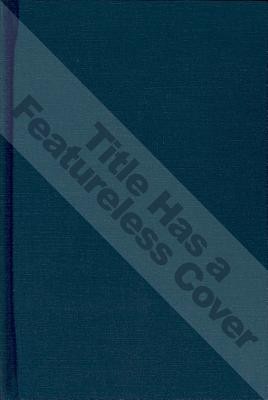
- We will send in 10–14 business days.
- Author: Bruce Masters
- Publisher: ACLS HISTORY E BOOK PROJECT
- Year: 1988
- ISBN-10: 1597401811
- ISBN-13: 9781597401814
- Format: 15.2 x 22.9 x 1.9 cm, kieti viršeliai
- Language: English
- SAVE -10% with code: EXTRA
The Origins of Western Economic Dominance in the Middle East (e-book) (used book) | bookbook.eu
Reviews
Description
This text compares the economic ideology of Western Europe and the Muslim Middle East in the early modern period in order to understand the reasons why the West came to dominate the Middle East economically. It offers a balance to Euro-centric works about the economic relations between the Middle East and the West in this time period. The book is intended for those interested in Mid-East history and economics, the Ottoman Empire, relations between the Middle East and the West, and the influence of Islam on Middle East politics. In the 18th century, the Ottoman Empire began to lose its economic independence, reversing the commercial relationship which had existed between the Middle East and Europe for centuries. This study offers a balance to the many works written from a European vantagepoint which have dealt with the incorporation of the Middle East into an economic relationship dominated by Europe. It illustrates how individual Middle Easterners, both merchants and government officials, took an active role in this exchange, experiencing significant economic gain from economic links to Europe. Adhering to Islamic theories of political economy, the Ottoman Empire was also often an unwitting agent in the changes which were occurring in the region's relationship with the West. Master's emphasis on the ideological role of Islam in determining Ottoman state policy toward industry and commerce gives this work its focus.
EXTRA 10 % discount with code: EXTRA
The promotion ends in 23d.18:41:58
The discount code is valid when purchasing from 10 €. Discounts do not stack.
- Author: Bruce Masters
- Publisher: ACLS HISTORY E BOOK PROJECT
- Year: 1988
- ISBN-10: 1597401811
- ISBN-13: 9781597401814
- Format: 15.2 x 22.9 x 1.9 cm, kieti viršeliai
- Language: English English
This text compares the economic ideology of Western Europe and the Muslim Middle East in the early modern period in order to understand the reasons why the West came to dominate the Middle East economically. It offers a balance to Euro-centric works about the economic relations between the Middle East and the West in this time period. The book is intended for those interested in Mid-East history and economics, the Ottoman Empire, relations between the Middle East and the West, and the influence of Islam on Middle East politics. In the 18th century, the Ottoman Empire began to lose its economic independence, reversing the commercial relationship which had existed between the Middle East and Europe for centuries. This study offers a balance to the many works written from a European vantagepoint which have dealt with the incorporation of the Middle East into an economic relationship dominated by Europe. It illustrates how individual Middle Easterners, both merchants and government officials, took an active role in this exchange, experiencing significant economic gain from economic links to Europe. Adhering to Islamic theories of political economy, the Ottoman Empire was also often an unwitting agent in the changes which were occurring in the region's relationship with the West. Master's emphasis on the ideological role of Islam in determining Ottoman state policy toward industry and commerce gives this work its focus.


Reviews